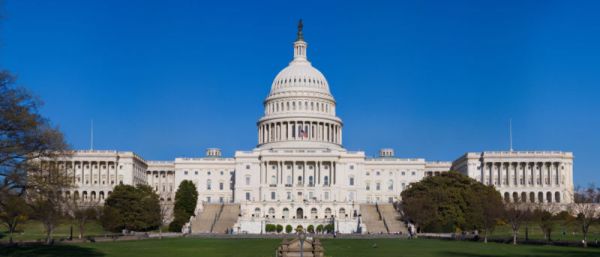A couple weeks ago, Treasury Secretary Timothy Geithner sent a letter to Senator Harry Reid urging Congress to take swift action to raise the national debt ceiling. The letter is several paragraphs long, and is publicly available on the Treasury website. One of the most noteworthy parts of Geithner’s letter is his list of “specific consequences” that would occur if the United States were to refrain from raising the debt ceiling:
- The Treasury would be forced to default on legal obligations of the United States, causing catastrophic damage to the economy, potentially much more harmful than the effects of the financial crisis of 2008 and 2009.
- A default would impose a substantial tax on all Americans. Because Treasuries represent the benchmark borrowing rate for all other sectors, default would raise all borrowing costs. Interest rates for state and local government, corporate and consumer borrowing, including home mortgage interest, would all rise sharply. Equity prices and home values would decline, reducing retirement savings and hurting the economic security of all Americans, leading to reductions in spending and investment, which would cause job losses and business failures on a significant scale.
- Default would have prolonged and far-reaching negative consequences on the safe-haven status of Treasuries and the dollar’s dominant role in the international financial system, causing further increases in interest rates and reducing the willingness of investors here and around the world to invest in the United States.
- Payments on a broad range of benefits and other U.S. obligations would be discontinued, limited, or adversely affected, including:
- U.S. military salaries and retirement benefits;
- Social Security and Medicare benefits;
- veterans’ benefits;
- federal civil service salaries and retirement benefits;
- individual and corporate tax refunds;
- unemployment benefits to states;
- defense vendor payments;
- interest and principal payments on Treasury bonds and other securities;
- student loan payments;
- Medicaid payments to states; and
- payments necessary to keep government facilities open.
-
This list is noticeably similar to the kind of letter that many people have received from debt collectors in reference to overdue obligations—the “pay us or else” notice. Sadly, it is likely that Geithner is correct in his assessment of these consequences. Failure to raise the debt ceiling promptly will almost certainly have far-reaching negative results.
However, Geithner’s letter fails to address the most important aspect of raising the debt ceiling. His perspective is perhaps skewed by his closeness to the slash-and-burn school of economics represented by the Federal Reserve and the big investment banks of Wall Street.
Apparently, long-term fiscal planning has become a lost art in the federal government, but the Treasury Secretary’s responsibility doesn’t end with making sure the ship doesn’t sink on his watch. Geithner has laid out the short-term consequences of failure to raise the debt ceiling fairly well, but the long-term consequences of continuing to raise the debt ceiling are also worthy of discussion.
Nearly everyone knows “that guy,” the one who lives far beyond his means and appears to have no sense of his financial future. He’s the friend or relative with so much debt that, on any given day, he can’t accurately account for it all. If there is a payment plan available for something he wants, he will buy it, even if he cannot afford it in the long run. He pays his household bills with a credit card and considers himself to be on solid financial ground if he can make his minimum payments on time, even if it means taking out payday loans to do it. A budget is a foreign concept to him.
We all know the situation “that guy” is getting himself into. Outside of the extremely unlikely event that he simultaneously wins the lottery and learns to balance his finances, his life will become a perpetual game of cat-and-mouse with debt collectors and repo men. He will sigh dejectedly every time his phone rings, knowing that most of the time it is another account representative calling to dun him for a past-due bill.
In the end, he will lose all of those nice things he bought and still owe significant sums of money for them. He’ll probably have to file for bankruptcy, and he’ll be lucky if he can sign up for phone plan or get a checking account for a decade afterward.
Unfortunately, the United States Congress is “that guy.” In the short term, cutting off access to further debt would be devastating. The entire national budget is conceived on the presumption that there will always be more credit available, and that everything is fine as long as we can make our minimum payments. But in the long run, continuing this foolish policy is not a viable option.
Eventually, the ability to borrow more and more money won’t make a difference. The interest will pile up higher and higher as the debt-bandages grow into larger obligations themselves. The government will have to cut services we’ve paid for and tax us all into poverty in order to keep propping up the system, as yet another short-term measure to keep the budget afloat. When that fails—and it will, without a question—inability to disburse extended unemployment benefits and student loans will be the least of our worries.
There’s one thing that very few people seem to understand about debt, and the national debt in particular. Lenders don’t just give out money on blind faith. There is always some security feature, some form of collateral that backs up the borrower’s promise to pay. In the case of the national debt, that collateral is the country itself—its natural resources, its land, the productivity of its people, and whatever else the lender might demand in repayment.
If the federal government continues on its current path, showering borrowed money on every perceived problem instead of seeking real solutions, the irresponsible politicians will be selling out all of us. Our once-great country will need to refinance its debt, the national equivalent of filing for bankruptcy, and we will be left at their mercy. The international banks will dictate our policies (not as they do now through lobbying, but as official mandates) and turn the United States into another of its vassals, like they have done to so many other debtor nations in the past decades. It will be devastating in ways that Geithner’s list of consequences does not come close to describing.
It is true that we must raise the debt ceiling now. By not doing so, we would effectively be forfeiting our economy. But, if opening the door to additional debt is to have any meaningful purpose, this willingness to permanently operate deeper and deeper in the red must end immediately. We need real leaders who will set us on a sustainable path for the future, not a series of schemes that will only see us through to the next election cycle.
Not-So-Fun Facts: If the national debt of the United States were to be printed in $100 notes and put into a single stack, that stack would be over 9,500 miles tall. From sea level, more than 99% of the stack would protrude out of Earth’s atmosphere and into space. If the debt were printed in $1 notes instead of $100 notes, it would be nearly enough to create 4 full stacks from Earth to the moon. If the debt were minted in pennies, it would be enough to create 14 stacks from Earth to the sun, with a leftover 15th stack approximately 46,000,000 miles tall.










